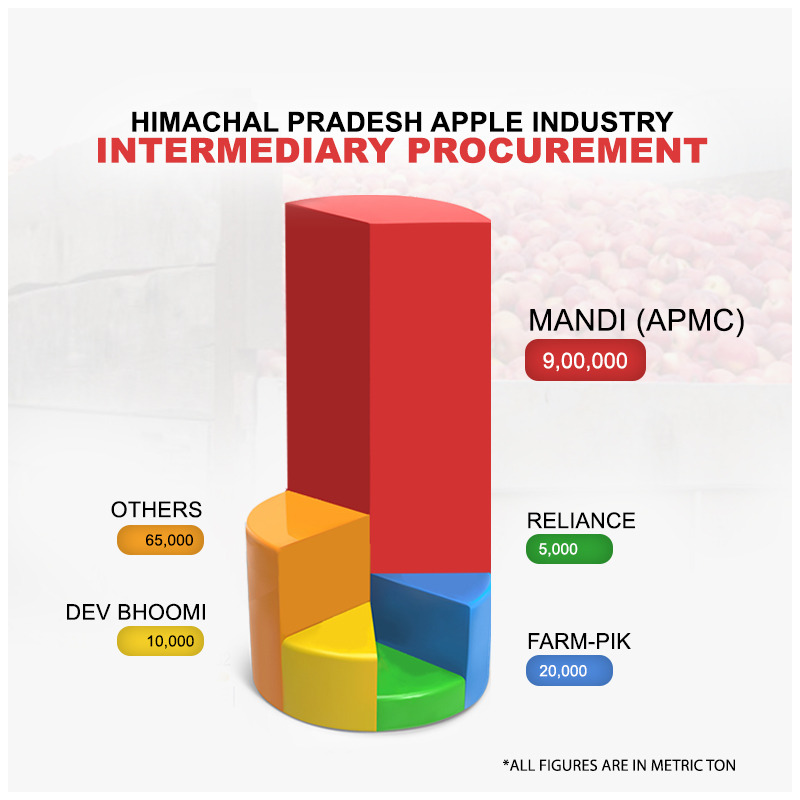Entry of private players will compel dominating mandi traders to offer better returns to apple farmers
Since the beginning of the apple procurement season that began last week, farmers are disgruntled with the market price, yet again, on account of their rising cost of production and living. Apple trade is dominated by a large number of small traders who decide the rules of the games suiting their own model. However, powerful old apple traders conveniently pass on the blame to the organized players who have bigger visibility but very modest market share.
Organised players such as Dev Bhumi, Adani, Reliance and others account for less than one lakh tonne of apple procurement in Himachal Pradesh that produces close to 10 lakh tonne a year. That means almost 90 per cent of the apple procurement is governed by mandis and other small traders. In absence of competition, traders have been dictating unreasonable terms for ages. Last year riding on the fervor created by the farmers’ agitation, these traders successfully managed to direct critics’ ire towards Adani Agri Fresh. This is despite the fact that Adani Agri Fresh started apple procurement at a certain price much after the mandi traders had already set the market trend by mid-August.
Interestingly, politicians and armchair experts from parts of India lambasted the private firm that procures only about 20,000 tonne of apple from Himachal Pradesh. On one hand when propaganda machinery was targeting this private player to protect its own business interests, apple farmers queued at its procurement facilities and the company had to stop procurement earlier than expected. After all, private players have disrupted apple trade with progressive practices in the interests of farmers. Unlike conventional traders at the mandis, private players offer better prices for apple that are sorted in presence of farmers who get online transfer of their realisation within a couple of days after the deal is sealed. Mandi traders are known for price manipulation irrespective of the quality of apple and delaying or denying payments by weeks and months. Farmers have also suffered on account of cheque bounce. Further, private players also provide other services such as training, cheaper or free agri inputs and plastic crates for transporting apple from farm to controlled atmosphere warehouses. New age storage system offers longer shelf life to apple resulting in better market prospects for the farmers and access to favoured fruit around the year for consumers.
Apple trade is a source of livelihood for thousands of traders and their families. They must remain in the business but not at the cost of the interests of apple growers whose expertise is in the farm and not in the trade. Like every field in the maturing market, conventional practices are bound to be challenged by the new and organized players who should also flourish in the interests of farmers. For instance, entry and expansion of private players in the past few years have established humble makhana, from Bihar, one of the most popular snacks in the national market. They have also compelled the local traders and aggregators to offer better returns to the farmers. Apple trade is not very different as private players are expanding gradually. Let us hope that the competition between the conventional mandi traders and emerging private players will improve the ease of doing business for the farmers. And needless to say that it will also ensure supply of quality apple at healthy prices for the end users throughout the year to keep the doctors away.


